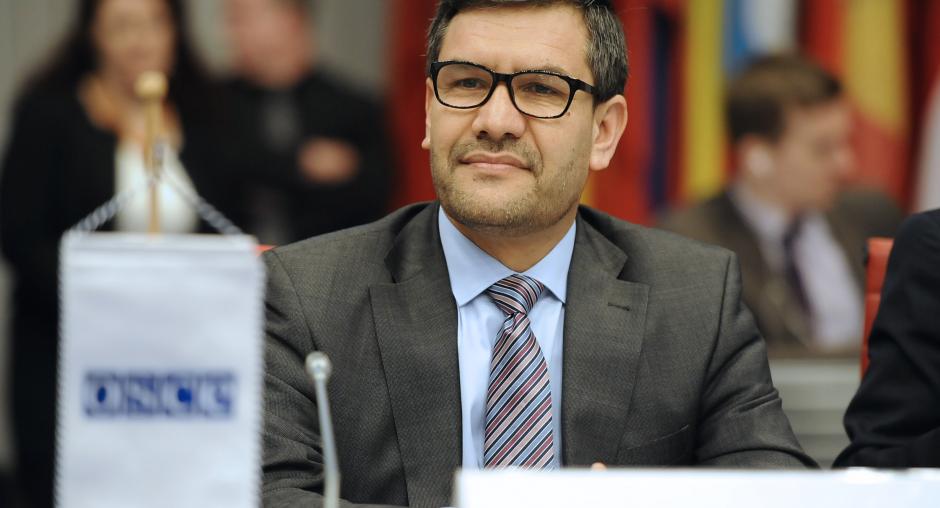Post-2014 Afghanistan will be no threat to other countries, Afghan Minister of Counter Narcotics tells OSCE

Afghanistan has made much progress in the twelve years and will not pose a threat to other countries in the region, the country’s Minister of Counter Narcotics Mobarez Rashedi told the OSCE Permanent Council in Vienna on 13 March 2014, as he highlighted ways to address the remaining challenges, including the fight against the illicit drugs.
Taking stock of the progress in such spheres as human rights and especially women’s rights, mass media, education and health, Rashedi said the April 2014 presidential and provincial elections would mark another democratic achievement for the country. “The Government of Afghanistan is committed to convening nation-wide, free, fair and transparent elections,” he said. Rashedi welcomed the OSCE’s agreement to Afghanistan’s request to dispatch an Election Support Team to these polls.
The transfer of security responsibilities from international forces to Afghan forces by the end of the year, Rashedi said, represents a challenge. Despite the increase in the number of the national security forces to 344,500 personnel, “there is still need for continued support by the international community in the form of advice, training, equipment and financial assistance in the coming years.”
He also said that the government is committed to an Afghan-led and Afghan-owned peace process. “Opposition armed forces wishing to join the peace process must honour the constitution, renounce violence and cut ties with international terrorist groups,” he stressed.
Illicit drugs continue to pose a major threat to the social, political, security and economic stability as well as public health, Rashedi added.
He noted the steps taken to increase drug treatment capacity, drugs seizures and to arrest and prosecute drug traffickers, but said much remains to be done. “Fighting narcotics will only be successful through an approach addressing the full chain of cultivation, production, drug trafficking and consumption, an approach based on shared responsibility,” Rashedi stressed. He praised the OSCE’s support in the training and capacity-building for counter-narcotics and law-enforcement officers.
“Post-2014 Afghanistan will not be a source of threat to other countries in the region,” Rashedi concluded. “We wish to encourage our partners not only to focus on threats, but also on fresh opportunities arising from increased co-operation.”
The Permanent Council is the OSCE's main regular decision-making body, comprising the Vienna-based delegations of the 57 OSCE participating States.
